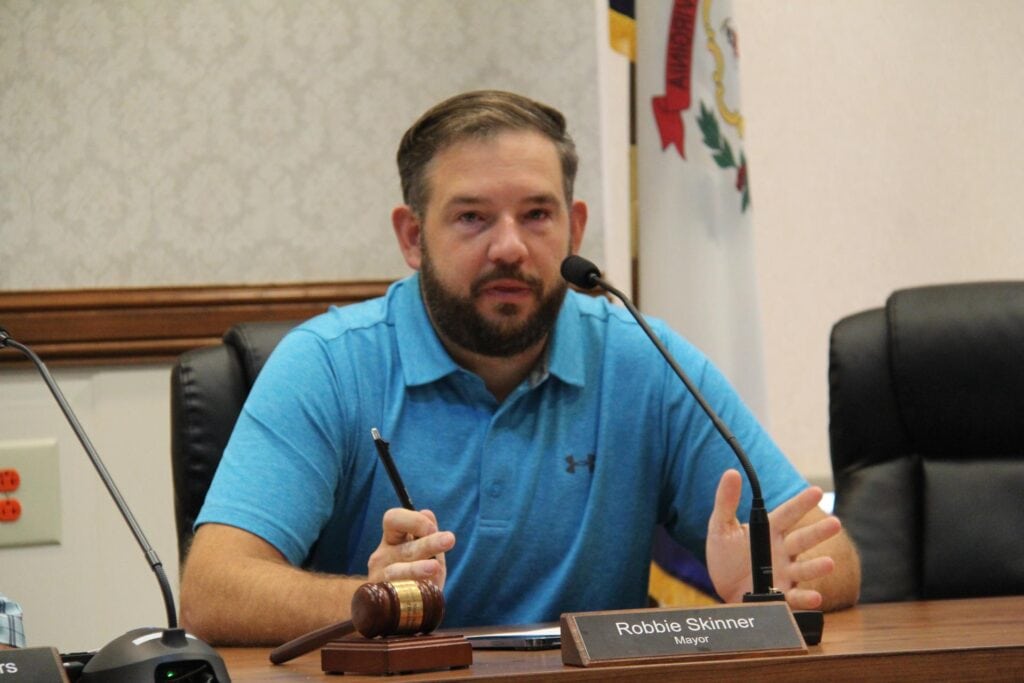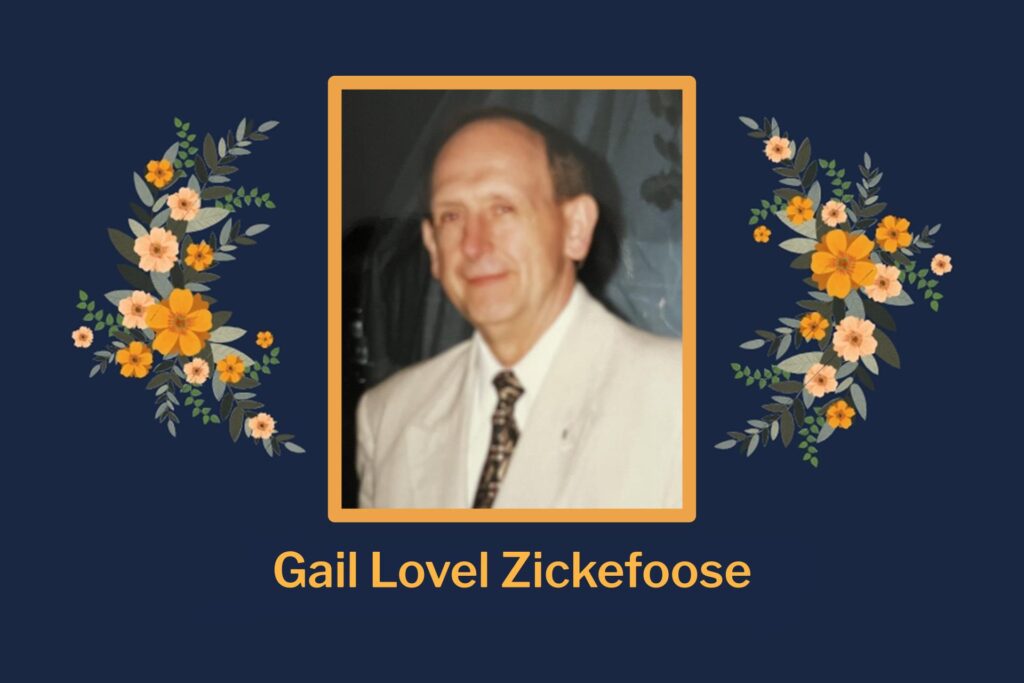Editor’s note: This story was originally published by Mountain State Spotlight. Get stories like this delivered to your email inbox once a week; sign up for the free newsletter at https://mountainstatespotlight.org/newsletter.
By Lauren Peace, Mountain State Spotlight
West Virginia is facing its second large HIV outbreak in two years, and the federal government is in Charleston to help. But there’s a key difference between the tools that are available now, and the ones the Centers for Disease Control and Prevention could use during Cabell County’s 2019 outbreak: new restrictions from both the capital city and the state on programs that distribute sterile syringes.
Experts, including those at the CDC, agree that these sort of harm reduction programs are one of the most effective ways to prevent the rapid transmission of disease among people who inject drugs.
But the recent changes are making it difficult to most effectively respond to the outbreak in Charleston.
“We’ve kind of got our hands tied behind our back because of the new laws,” said Christine Teague, program director for the Ryan White HIV prevention program at Charleston Area Medical Center.
While Charleston grapples with the current outbreak, health leaders around the state fear that the syringe access services (sometimes called needle exchanges) in their own communities will be forced to shut down because of the new laws. If that happens, they say, they’re worried that what’s playing out in Charleston will happen in their communities, too.
More than half of the state’s 55 counties are among the 220 most vulnerable counties in the United States for the spread of infectious disease, according to the CDC.
“There are powder kegs out there waiting for the fuse to be lit,” Teague said, when asked if she was concerned about the possible emergence of HIV clusters around West Virginia. “It just takes one case.”
‘I can’t risk the fines’
Although the new state law doesn’t explicitly outlaw syringe distribution, it imposes strict limits on how many needles can be distributed, who has the authority to distribute them, and who is eligible to receive them.
It also forces programs to enforce policies that contradict CDC best practices, such as labeling syringes, requiring a valid state ID and requiring participants to return a needle to get a clean one. The changes were opposed by public health experts and leave the health officials currently responding to the outbreak with fewer resources to prevent further spread.
Mountain State Spotlight reached out to the 16 harm reduction programs the West Virginia Department of Health and Human Resources lists as providing syringe access services in the state. We heard back from nine of them.
Of those, only one — West Virginia Health Right in Charleston — said that it was confident it would be able to continue operating next year given the new legislation.
In contrast, Lloyd White, who heads the Marion County Health Department, said his program would be permanently closing because of the new laws.
“We’re still in the middle of a pandemic. I can’t risk the fines. I just can’t take a chance on a hit from our general health revenue,” White said. “I think we’re going to see an explosion of downstream effects. HIV, Hep C… all the things that these programs prevent.”
For the other programs, the future of syringe services and harm reduction remains up in the air.
Like White, many program directors said the fines and possible criminal penalties were a concern. But so are the requirements that will need additional resources: the application fee, syringe labeling requirements and credentialed staffing levels. Local health departments have been historically underfunded, but the pandemic has stretched resources even more.
“You have to make sure you have the dollars. There isn’t direct support from the state for these programs and the new requirements are expensive,” said Howard Gamble, administrator of the Wheeling-Ohio County Health Department. “What you have are competitive grants, which is great if you’re an organization that has the time to write a competitive grant.”
Gamble said the syringe access program run by his health department is the only program operating in the county. He started it a few years ago as a way to prevent the spread of infectious disease, and worked with local law enforcement, mental health providers and the AIDS Task Force of the Upper Ohio Valley.
“Unfortunately, nobody [from the state Legislature] called and asked ‘hey, do you have a plan in place and how’s it working?’” Gamble said. “We’d been doing well. Now we’re not sure what’s going to happen.”
At the other end of the state, Gena Carter, the administrator of the Wyoming County Health Department, echoed those sentiments. She said the program she runs is small, but in demand. Without it, she worries that Wyoming County will face an outbreak like Charleston.
“The people who need this program, their life matters,” Carter said. “This is about keeping our community safe and stopping diseases from spreading.”
In addition to funding concerns, Carter doesn’t know if the new law will allow her program’s mobile clinic to continue. Using a van, full of supplies, to drive around the county and provide services is the only way the program is effective, Carter said, in part because most of the people the program serves don’t have access to transportation. But the new rules make it unclear whether or not mobile clinics will be certified, and what rules they’ll have to follow.
What is clear, however, is that programs that operate beyond county lines will have to apply for multiple licenses in order to continue providing services. That’s leading Laura Jones, who runs the syringe services program in Monongalia County, to reevaluate whether her program can continue offering services in neighboring Upshur and Preston counties.
Now Jones says the Morgantown program is under threat. The likelihood that her other programs will continue operating is even slimmer. And for programs that serve residents from across state lines — like in Jackson and Cabell counties — the law’s requirement that all participants have valid West Virginia IDs will inhibit the departments’ ability to make sure that the full community is being served.
“You look at Kanawha County and the current HIV outbreak that they’re dealing with,” said Jackson County Health Department administrator Amy Haskins. “It normally does not take very long to see the effects in surrounding areas.”
Haskins said Jackson County suspended its program during the pandemic so that staff could focus on COVID-19, but that she had planned to restart it once they had the resources to do so. Now, that decision will be based on whether or not they can comply with the new law.
Dr. Mike Kilkenny, the administrator of the Cabell-Huntington Health Department, declined to comment on the future of the program in his county.
But there, three states run into one community. People walk across the river to get services. And some of the people who live in Huntington don’t necessarily have permanent residency in West Virginia. But they are members of the community and as much a part of public health as anyone else. Under the new laws, those people won’t be able to access clean needles.
“Any county that’s right on the border can have people living in their community, that are positive for HIV, that they aren’t going to be able to serve,” said Robin Pollini, a professor at West Virginia University’s School of Medicine. She specializes in infectious disease and was in Huntington when the CDC responded to the HIV outbreak there in 2019.
“So you’re literally going to have to send an HIV-positive resident out into the community and you can’t even reasonably give them the advice to not share syringes, because where are they going to get clean syringes from?” Pollini said. “I’m at a loss. And I’m really concerned.”
Back in Charleston
Experts in the transmission of infectious disease, like Pollini, say that the elimination of a syringe access program by the Kanawha-Charleston Health Department in 2018 probably led to Charleston’s current HIV outbreak in the first place.
With HIV circulating in Cabell County, a population with a high prevalence of injection drug use and limited access to sterile needles, Kanawha County was ripe for the transmission of disease.
Since the beginning of the year, at least 14 new cases of HIV linked to injection drug use have been identified in Kanawha County. In 2020, health officials identified 39. Those numbers are in stark contrast to what’s to be expected for a population this size. In a typical year, the county would see fewer than two.
“I’ve said it 100 times. You can’t test your way out of this,” Pollini said. “I don’t know how you respond to an HIV outbreak when having an evidence based syringe access program is not an option.”
But that’s what Charleston is going to have to do.
“This [outbreak] isn’t something that’s going to go away in a month,” said Teague, who is working with the CDC, the Kanawha-Charleston Health Department and community partners to stifle the outbreak.
Teague said that without increasing the supply of sterile needles, public health workers are left with the other two legs of a three-legged stool. They’re working to increase testing through mobile clinics and community testing events, and they’re trying to come up with innovative ways to expand access to medications that help prevent infection in the first place. One possibility is opening a walk-up window at West Virginia Health Right’s new clinic on Charleston’s West Side.
“This [HIV outbreak] will be with us for years, so now we have to figure out creative ways to meet needs,” Teague said.
Teague said that in Charleston, those conversations are finally beginning to take place. Public health officials had been focused on the pandemic over the last year, but now that the spread of COVID-19 is slowing, Teague said more attention is being given to the HIV crisis.
The Kanawha-Charleston Health Department’s HIV task force has resumed regular meetings, and after Charleston Mayor Amy Goodwin sent a letter to the state asking for additional support from the CDC, those researchers came to town.
“Now that the CDC is here… I finally feel like there’s some validation that people are acknowledging that this is a serious issue,” Teague said.
She just wishes it would have happened sooner.
Reach reporter Lauren Peace at laurenpeace@mountainstatespotlight.org.













